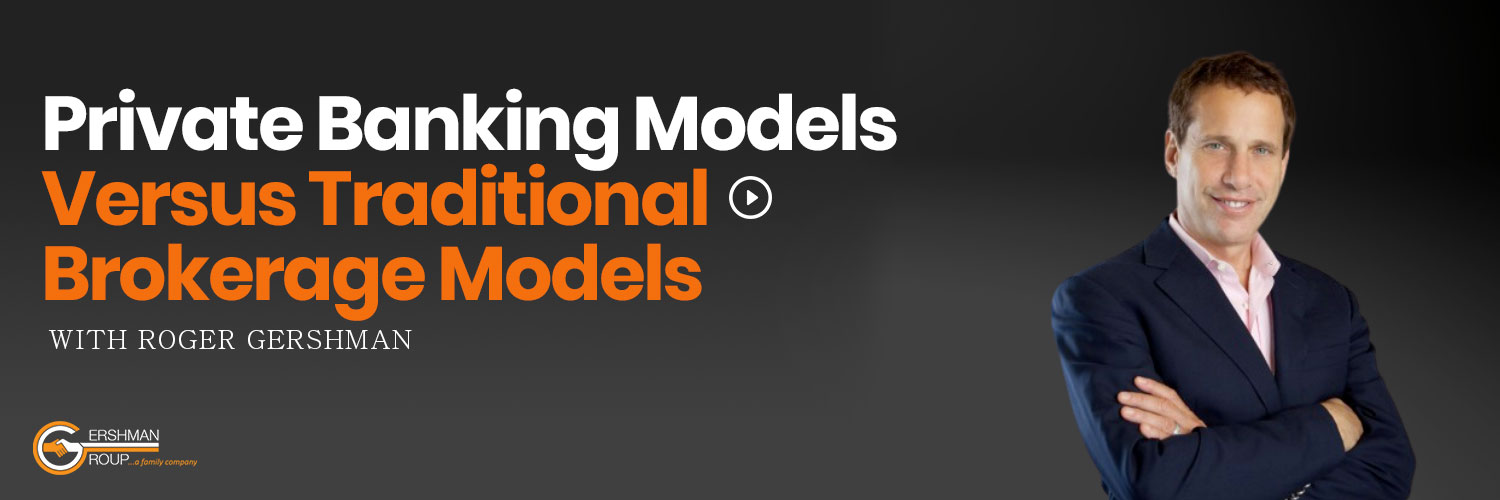This podcast is about private banking models versus traditional brokerage models.
There is essentially a philosophical and economical war between models. You have on one hand the JP Morgan, the US trust the Citibank, the BoA model. Versus the Morgan Stanley the UBS, the Wells Fargo, Merrill Lynch, Stiefel, Nicholas and Ray J model.
So which one is better? Well, essentially, bankers at both firms do almost identical services for their clients. They build asset allocations, they, of course, service their accounts. They help with comprehensive wealth management solutions from trust, estate and tax and philanthropic planning and global investment solutions, financial planning, and managing these relationships. It’s interesting that you take a $3 million producer at Morgan Stanley or UBS or Merrill Lynch or Wells, right, versus a $3 million producer at JP Morgan, private bank, or BoA or city or US trust. And once again, that $3 million producer is providing identical services.
Now, both models look down on each other, meaning that the bankers on both sides look down upon each other, that JP Morgan, private banker looks down on a Morgan Stanley adviser and says, Well, they’re just brokers. And they’re just commission oriented folks. And we at JP Morgan, provide a much more holistic and comprehensive service, etc.
The advisor at Morgan Stanley UBSs, and Wells and look down upon the private bankers and say, Well, these guys are just salary bonus, guys, and they, you know, they don’t know as much as we do, and they don’t work as hard as we do.
The answer is, they both work really hard. Again, providing identical services. The big difference is that at traditional banks and brokerage firms, they eat what they kill. And they’re paid an average of roughly about, you know, call it 50% +/-. Wearing whereas the private bankers are paid a salary bonus by the firm.
And essentially, the private bankers work for the firm and therefore, are paid by the firm and whose clients are they? The really the private banks, right? It’s hard to pull assets from the private bank. But it does happen, but comparatively, who owns the client at traditional banks and brokerage firms?
It is the advisor, their clients. $3 million producer at Morgan Stanley and traditional brokerage firms are paid again about a million and a half call it $1M million half dollars, right. Whereas that same exact $3 million producer JP Morgan us Trust Bank of America or Citigroup or a paid an average of between salary and bonus, maybe $400,000 hours, literally a third of what their counterparts are offered.
So which model is better? Obvious answer. But the real question that advisors should be asking themselves is which model is better for their firm? And clearly, the model the private banking model is better for the firm. Why? It’s a heck of a lot more profitable. The clients are a heck of a lot more sticky.
Advice advisors should start questioning whether or not their firm is going towards the private banking model, which is the biggest fear and has been a fear for quite a number of years. Well, it’s happening before our eyes and firms like Merrill are starting to gravitate towards the BMA model, private banking model, a lot more profitable and better for shareholders. Where it’s interesting to note that firms like Wells Fargo has essentially gotten rid of their entire private bank salary bonus private banking model.
Where does your firm set therein lies the battle between a private bank versus the traditional brokerage model. Thank you for listening.
As the Editor of The Gershman Group, a boutique financial services consulting firm, TGG brings expertise in financial analysis, strategic planning, and market research. With a keen eye for detail and a passion for helping businesses navigate complex financial landscapes, TGG delivers insightful, high-quality content to empower informed decisions. Backed by years of industry experience, TGG makes complex topics accessible through clear and compelling communication, shaping the firm’s thought leadership and commitment to excellence in financial services.








